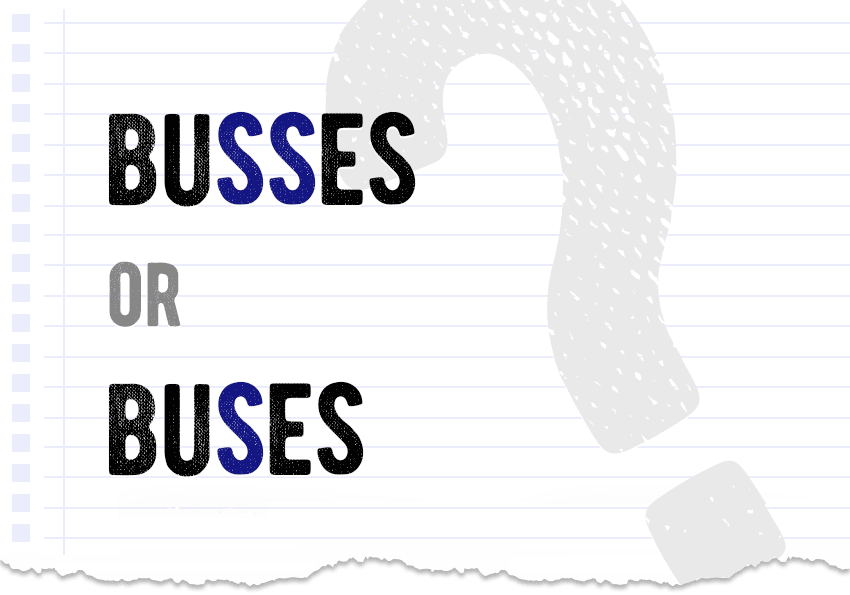Busses or buses – which is correct?
Imagine that you want to use the plural form of the word bus. Are you going to use busses or buses? If you are not sure which form is right to use, don’t worry. With our article, you will find out all the information you need to make the right decision!

Busses or buses – which form is correct?
Busses and buses are commonly confused English words. The truth is that both busses and buses are correct forms. However, the latter is much more common. The form busses is so rare that many people regard it as incorrect. Despite everything, dictionaries list busses as a secondary spelling. Busses is accepted as the correct form for the verb to bus.
What’s the meaning of the word buses?
At the outset, it’s worth noting that buses is plural of the noun bus. The word bus is an abbreviation of the Latin word omnibus, which means for all. Buses and busses are large motor vehicles carrying passengers by road. This is the form of public transportation, so we can safely conclude that buses are FOR ALL. Buses usually serve on a fixed route and people pay with exact change for a ticket.
What’s the meaning of the word busses?
As we already know, busses means vehicles carrying passengers but… not only! In some contexts, buss means kiss. This meaning probably evolved from the sound of giving somebody a kiss. So, it appears that the plural form of the noun buss is busses and it sometimes means more than one kiss (depending on the context). However, in the vast majority of cases, busses are understood as vehicles.
What’s more, busses is sometimes used as a verb (“Alabama busses children to school for free”). Simply saying, busses in one of the words that have different meanings despite sharing the same spelling.
What’s the difference between busses and buses?
The difference is that there is one ‘s’ in buses and double ‘s’ in busses. There is a rule in the English language saying that we need to add a suffix after a short vowel sound. In many words, final consonants are often doubled when an ending -es, -ing, or -ed is added to the end of the word.
Following this rule, we should use the word busses. Not only that, busses was the preferred plural of the word bus until 1961. After that time, the form buses took over and is the usual plural of bus in both British and American English.
What are the synonyms of the words busses and buses?
- Minibuses,
- microbuses,
- minivans,
- jitneys.
Buses or busses – it’s all clear! Examples from literature
- “The morning of the March, any rickety carloads of angry, dusty, sweating small-town Negroes would have gotten lost among the chartered jet planes, railroad cars, and air-conditioned buses.”
The Autobiography of Malcolm X
- “But the group stopped riding the buses for certain named things… that is correct, isn’t it?… for certain things that Reverend King said were the things they objected to.”
Claudette Colvin, Twice Toward Justice


